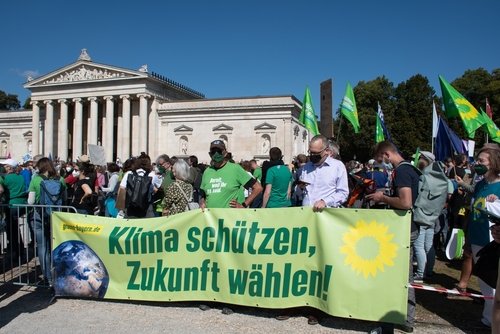Belgium, (Brussels Morning Newspaper) German police started to clear the green protest over the expansion of the Garzweiler coal mine run by RWE power utility in North Rhine-Westphalia.
Police pointed out that the protest turned violent, with rioters throwing bottles, rocks, and Molotov cocktails at officers, according to a Reuters report on Wednesday.
Protesters stressed that expansion of the coal mine was “stealing our future.”
Many wore balaclavas or masks and occupied the abandoned village of Lützerath, with RWE announcing in a statement on Wednesday that it would start to demolish the abandoned village.
“RWE is appealing to the squatters to observe the rule of law and to end the illegal occupation of buildings, plants and sites belonging to RWE peacefully,” the utility noted and added, “nobody should put their own health and life at risk by participating in illegal activity.”
The regional courts ruled earlier this week that squatters need to vacate Lützerath, stressing that land and buildings in the village belong to RWE.
Police started clearing makeshift barricades and protestors from the village on Tuesday, calling on them to exercise restraint and avoid violence.
Change of policy
Environmentalists observed that Germany has not been prioritizing its green policies since the start of the energy crisis, pointing out that the country has replaced natural gas imported from Russia with coal in an effort to maintain its power grid.
As Germany imposed an embargo on Russian fossil fuels after the war in Ukraine broke out, Berlin has turned to coal and is looking for alternative suppliers and investing in liquefied natural gas (LNG) terminals.
The Greens are particularly upset with the policy change, especially since the party is back in power as part of a broader coalition after 16 years.
Besides the return to coal, environmental activists abject to Germany’s plans to keep its nuclear power plants running in an effort to increase power production and rein in rising energy prices.
RWE stressed that it supports the energy transition and pointed out that the temporary return to coal is needed to maintain the power grid and help Germany to weather the energy crisis.
The company concluded that the Garzweiler mine produces approximately 25 million tonnes of lignite per year.




